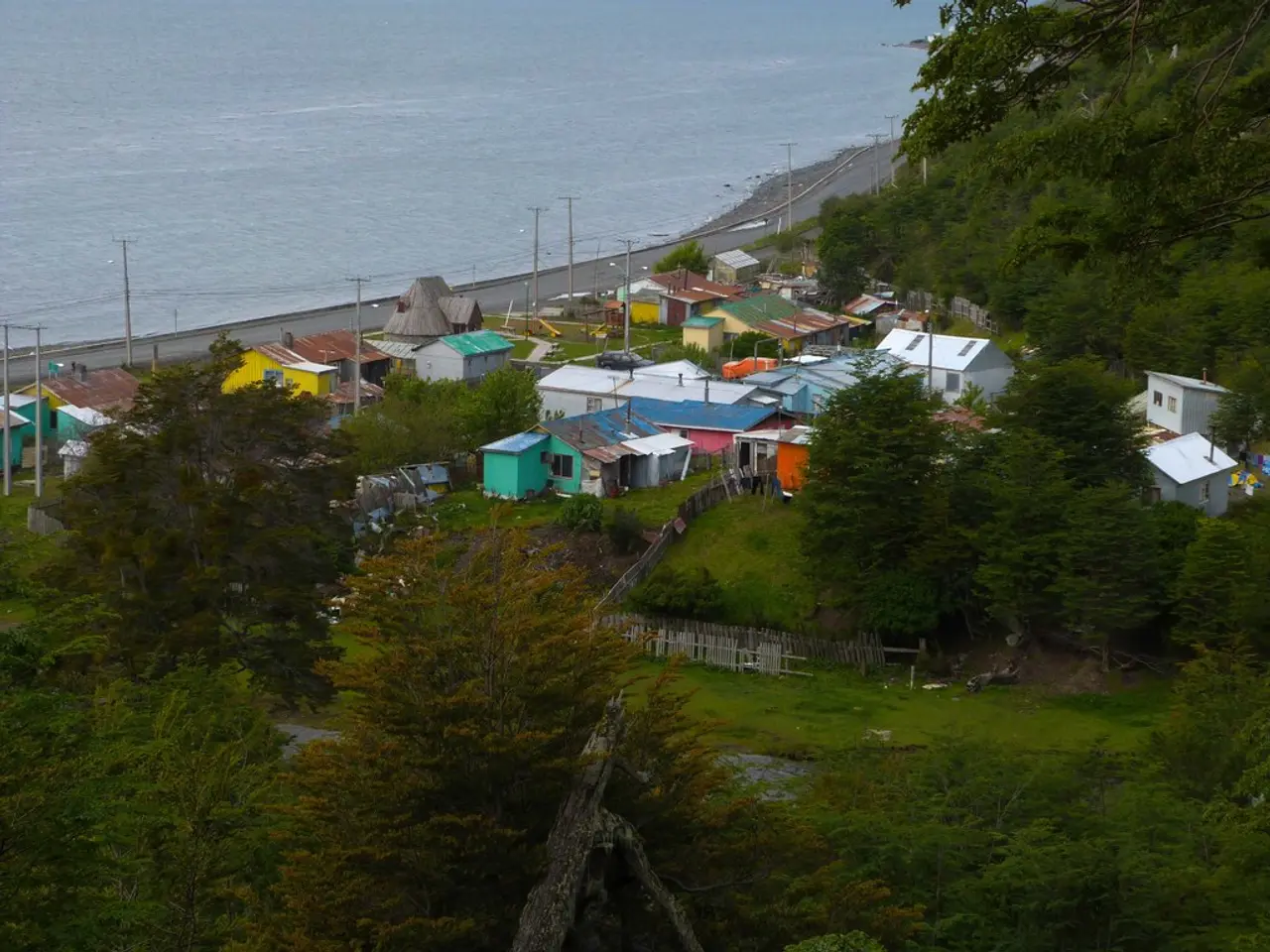NRW State Government fails to earmark funds for flood prevention measures
Slow Utilization of Flood Protection Funds in North Rhine-Westphalia
North Rhine-Westphalia, one of Germany's most flood-prone regions, is lagging behind other states in utilizing federal funds for flood protection. This is causing concern among experts and local politicians, as the region has suffered significant losses due to flooding over the past two decades.
Hundreds of helpers have been repairing dikes to prevent the river from breaking into city districts. However, the state has only managed to draw down a quarter (25%) of the federal funds for flood protection from 2018 to 2023. This is in stark contrast to Bavaria and Baden-Württemberg, which have drawn down almost 97% and 94% of their respective funds, respectively.
The federal funds aim to increase flood safety and protect lives, property, the environment, and natural water resources. Yet, North Rhine-Westphalia has drawn down almost 44 million euros less than it could have, leaving it vulnerable to future flood disasters.
The low drawdown rate of funds for flood protection has been noted as concerning, given the region's frequent flooding issues. The Ruhr river in Alstaden, for instance, has been overflowing due to frequent flooding issues. North Rhine-Westphalia has 438 risk waters with a total length of 5,894 kilometers, many of which are in poor condition.
The state government's slow pace in utilizing these funds has been a topic of discussion. SPD state MP Sonja Bongers expressed concern about the low drawdown rate of funds for flood protection. She emphasized the need for swift action to strengthen the region's flood defences.
Experts attribute North Rhine-Westphalia's slow progress to a combination of institutional, planning, and investment prioritization challenges. The Stability Council has urged states, including North Rhine-Westphalia, to use the new “Infrastructure and Climate Neutrality” special fund more deliberately and strategically. However, the council reports that North Rhine-Westphalia, like other states, is slow in shifting investment focus from routine expenditures to growth-promoting, climate-resilient infrastructure projects.
Germany faces overall economic and fiscal constraints, which create competing financial priorities. This, coupled with complex coordination and institutional challenges, may be slowing down flood protection fund deployment in North Rhine-Westphalia relative to other states.
To address these issues, a legal expert has called for the simplification and acceleration of permit procedures for flood protection measures in North Rhine-Westphalia. He emphasized the importance of strong political support, clear mandates, multi-stakeholder coordination, and institutional capacity building, which may be incompletely developed or slower to implement in North Rhine-Westphalia.
As North Rhine-Westphalia continues to grapple with flood protection challenges, it is crucial for the state government to prioritize and accelerate the deployment of available federal funds to safeguard lives, property, and the environment from the devastating effects of floods.
[1] Stability Council Report [2] Federal Ministry for the Environment, Nature Conservation and Nuclear Safety Report [3] German Watch Report
- The slow utilization of flood protection funds in North Rhine-Westphalia could potentially impact not only the industry and financial sectors but also environmental-science research, given the region's vulnerable position and the importance of flood safety in preserving natural water resources.
- As the situation unfolds, it is essential for North Rhine-Westphalia to prioritize the deployment of federal funds for flood protection, leveraging insights from both environmental-science research and finance strategies to establish a robust, climate-resilient industrial infrastructure.




